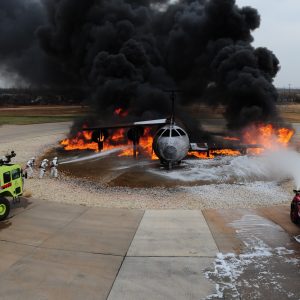The Stream, March 23: Drought and Conflict Leave 124m People Facing Acute Hunger
The Global Rundown
124 million people across 51 countries face acute hunger due to drought and conflict, according to a UN report. A new analysis shows that the Great Pacific Garbage Patch weighs 87,000 tons and is twice the size of Texas. A field test by the Massachusetts Institute of Technology (MIT) successfully harvests water from desert air. In Indonesia, women are forced to swim several kilometers to gather clean water for their remote fishing villages. As the World Water Forum takes place in Brasília, persecuted river defenders in Brazil hold an alternative forum. In the wake of the three hottest years on record, 2018 begins with a wave of severe weather.
“The start of 2018 has continued where 2017 left off – with extreme weather claiming lives and destroying livelihoods.” –Petteri Taalas, Secretary-General of the United Nations World Meteorological Organisation (WMO), in reference to the harmful weather extremes witnessed in 2018 so far, including heat waves in Australia, freak warmth in the Arctic, and water shortages in Cape Town. The WMO report also noted that disaster losses from weather and climate-related events in 2017 totaled an estimated $320 billion, a record after adjustment for inflation. Reuters
Latest WaterNews from Circle of Blue
Saving a Thirsty Planet Must be Based on Reality, Not Perception – Looks can deceive – one farmer’s field may be lush while another’s dry. A smart water future means seeing past your own pasture.
Perfluorinated Chemicals Health Study Included in Congress Budget Deal – CDC will assess exposure to the chemical at U.S. military bases.
Egypt’s Nile River Pressured by Population Growth, Rising Sea Level – Threats to the Nile and explosive population growth are pushing Egypt toward severe water scarcity.
By The Numbers
124 million Number of people facing acute hunger due to drought and conflict in 51 countries, according to a new United Nations report. The report found that food emergencies are typically determined by a mix of conflict, extreme climate shocks, and rising food prices. UN News
4 kilometers Distance that women in Indonesia’s Tinambung district must swim in order to fetch clean water for their villages. Water in the district’s remote fishing villages is undrinkable, forcing “water collectors” to swim upstream daily to access clean water wells. Channel NewsAsia
1.8 trillion Estimated number of plastic pieces in the Great Pacific Garbage Patch, a mass of floating garbage in the North Pacific. Recent analysis found that the garbage patch weighs as much as 43,000 cars, is twice the size of Texas, and is made up largely of plastic. Researchers hope the studying the makeup of the mass will aid in clean-up efforts. PBS NewsHour
Science, Studies, And Reports
Researchers at MIT have developed a device that extracts water from desert air. The solar-powered device, which was first proposed last year, has now been successfully field tested in the dry air of Tempe, Arizona. Although more work is needed to scale up the process, the technology holds potential for producing drinking water in extremely arid locations. MIT News
On The Radar
In a park near this week’s World Water Forum in Brasília, community activists and “river defenders” set up an alternative forum to discuss the negative impacts of fracking, dams, and water privatization on Brazil’s rivers. Such ventures have frequently destroyed the livelihoods and drinking water sources of Brazilian communities, and activists trying to defend the rivers are often murdered or criminalized. The Guardian
In context: Murder of of activists defending safe water and environment rise sharply.
Kayla Ritter is a recent graduate of Michigan State University, where she studied International Relations and Teaching English to Speakers of Other Languages. She is currently based in Manton, Michigan. Kayla enjoys running, writing, and traveling. Contact Kayla Ritter





Leave a Reply
Want to join the discussion?Feel free to contribute!